10 Types of Translation Services Your Project Needs

Translation is becoming a growing requirement for many businesses today. Several factors, such as legal and regulatory requirements, globalization, technological developments, or simply the need to cross linguistic barriers, have created a surge in demand for translation services.
As per Statista, the translation industry, valued at $49.6 billion in 2019, rose to $56.18 billion last year, demonstrating a staggering rise in just two years. If you, too, have a product or service that is immensely marketable to an international audience, you must invest in localizing your brand website and other communications.
That being said, translation is a challenging task. There are different translation services, and each type is suitable for a specific project. Today’s article will help you understand the many types of language translation services and how you can choose the best one for your project.
The Main Types of Translation Services
There are several types of translation services, depending on your specific industry, your project type, and the document that requires translation. Some of the most popular ones are as below:
Types of translation based on the method of translation
1. Machine translation services
Often referred to as MT, machine translation uses software to translate text without human intervention. Moving further, MT is categorized into two types: customizable and generic MT. Generic MT implies free services such as Google Translate. Anyone in the world can easily access and use these services. On the other hand, customizable MT is specialized software that can be trained to offer close to accurate translation results for specific industries.
2. Human translation services
Human translation, or HT, is when an individual translates text based on expertise in multiple foreign languages. This is the oldest type of translation service that is still the most effective and relevant today. Human translation is done either via freelance translators or professional translation agencies.
Types of Translation Based on Content
- Technical translation
Almost all companies deal with technical documents like manuals, catalogs, user guides, technical drawings, patents, Material Safety Data Sheets, etc. The translation service that needs to translate such documents adequately is technical translation.
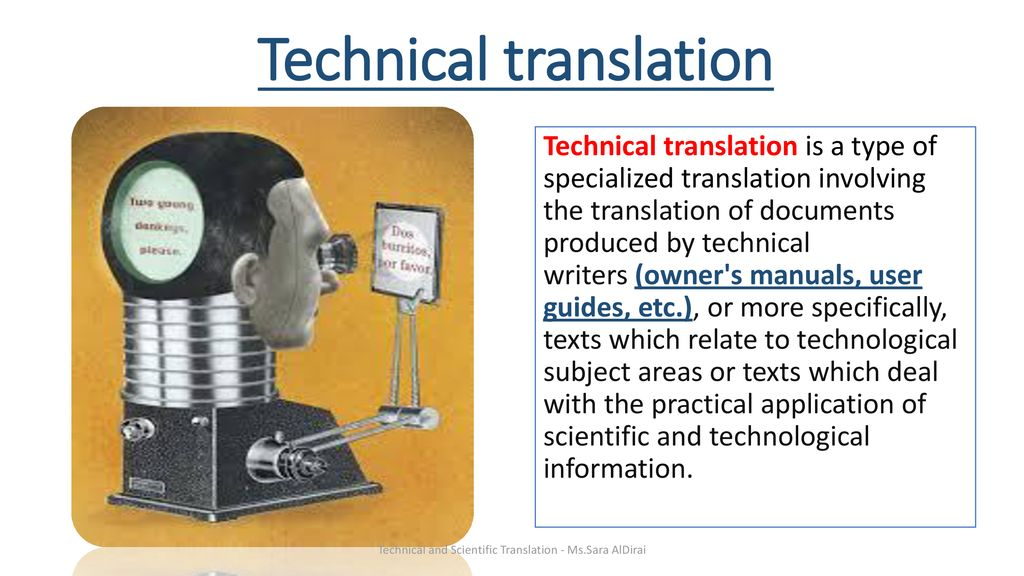
The vast range of documents means that technical translation is needed in almost every industry, from electronics and automotive to pharmaceuticals and telecommunications. At the same time, technical translation is quite challenging as it deals with jargon and different metric systems in different countries.
Consequently, technical translators require in-depth expertise in how technical texts are written and their legal requirements.
- Financial translation
Insurance companies, banking institutions, and other financial firms frequently require financial translation. This type of language translation allows them to expand access to their services and establish themselves as an authority that serves across boundaries. Besides, it helps them comply with international regulations.
Today, an increasing number of financial firms are venturing into developing markets. Consequently, they need to translate an array of documents, ranging from tax reports to company accounts. And this requires specialist translators who are well-versed in all the financial jargon. These translators must carefully understand the local laws and regulations of the place they are writing for.
- Legal translation
This is indubitably one of the most complex types of translation. Essentially, it refers to translating legal documents such as service-level agreements, witness statements, court transcripts, notarised documents, etc.
Whenever a business plans to diversify and expand its footprint into international markets, it must ensure that all its legal documents are compliant. Additionally, each document must be carefully and accurately translated without any mistakes. Therefore, legal translation must be done by specialists who understand both the source and target cultures well. They must translate these documents so that people from varied political, cultural, and socio-economic backgrounds can easily understand them.

- Administrative translation
Administrative translation is the translation of documents required for everyday business operations. These documents typically include contractual agreements, letters, newsletters, invoices, etc.
Organizations require administrative translation when they are running a suite of global operations. It enables them to rise above language barriers and seamlessly communicate with their employees, shareholders, and investors settled abroad. It ensures that all organization members are on the same page.
- Literary translation
Literary translation involves translating literary works such as essays, scripts, novels, etc. This is one of the most intriguing kinds of translation, as the choice of words matters. It is unlike any of the translation types mentioned above as apart from correct translation, this process also involves considering the original author’s unique literary style.
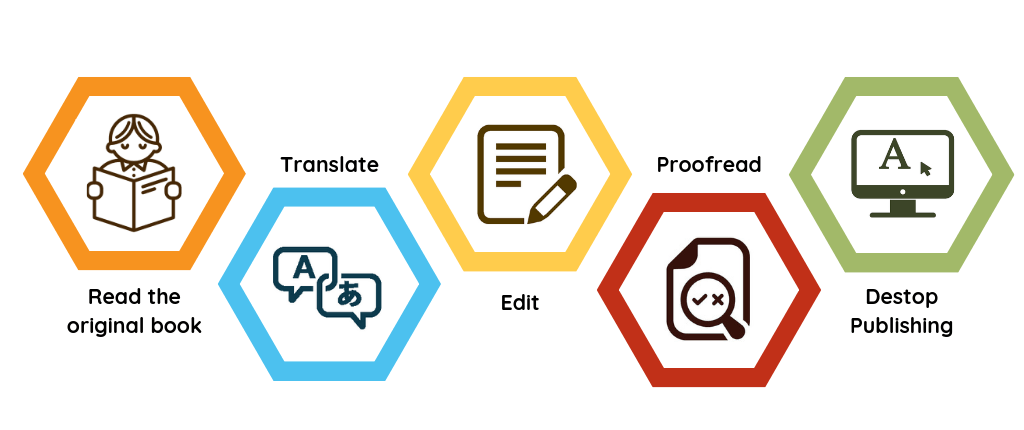
Literary translators are highly qualified professionals aware of the text’s emotions, feelings, connotations, and cultural sensibilities. They possess a sense of creativity and the ability to emulate the original to produce the best version of a foreign masterpiece.
- Certified translation
Many times, certain documents require to be translated by a certified translator. Typically, these legal documents require a sworn translator’s signature to authorize the official translations. The most common examples of such documents are wills, death certificates, marital documents, divorce settlement papers, civil status documentation, etc.
Most certified translators work in courtrooms. They serve as juridical translators and attest to the completeness and accuracy of such legal documents to the best of their knowledge.
- Medical translation
As the name suggests, medical translation involves translating content and documents from the medical or pharmaceutical industry. The most common medical documents include medical records, medical publications or case studies, prescription or packaging information, clinical research documents, and more.
Medical translation is also a complex field that requires extensive knowledge and expertise. It is crucial to have a translation partner with experience in the medical industry is crucial. Besides the medication details and the medical jargon, every country has specific medical device requirements. Thus, it is best to have a trained professional manage it for you.
- Website translation
Another significant type of translation services is website translation, which deals with website content translated into various languages. Several big companies with their products in the international markets also opt for this service. It involves addressing all cultural nuances, such as differences in currency, addresses, availability of different products, etc.
Smaller companies, on the other hand, should have their micro websites translated into regional languages that further appeal to local audiences.
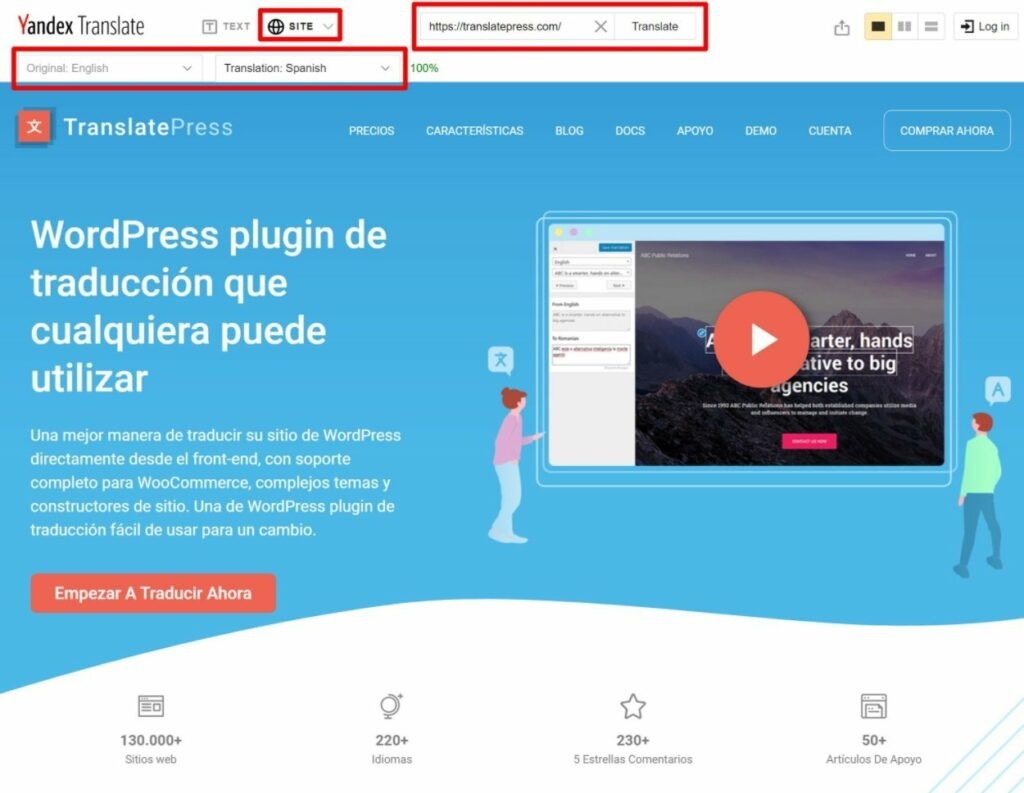
The Importance of Selecting The Right Type of Translation Service
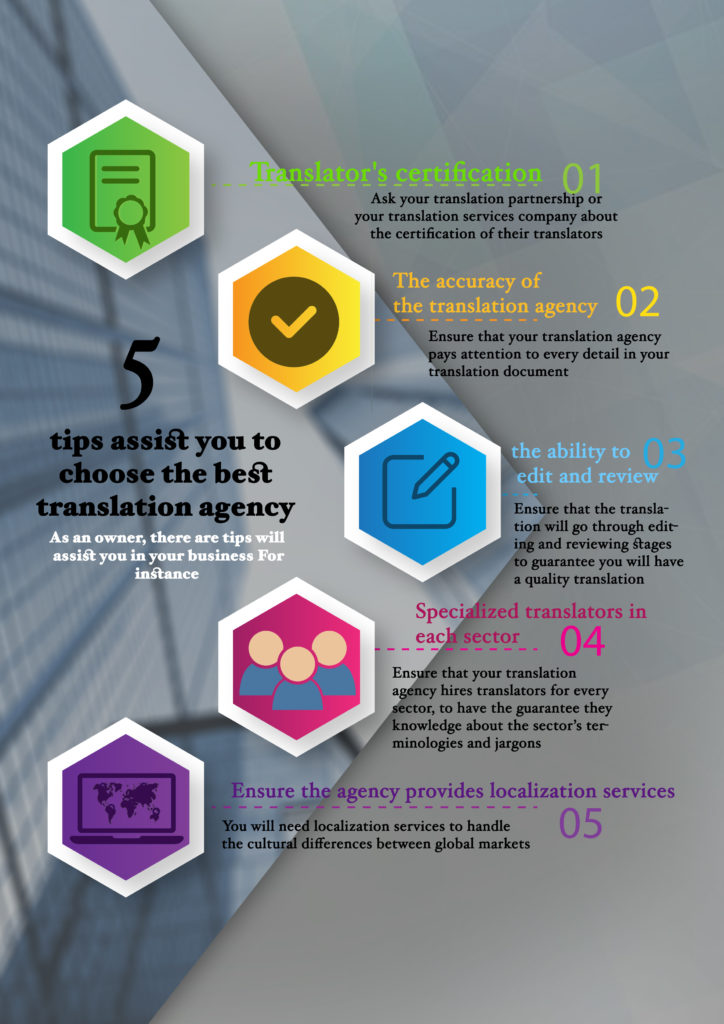
Now that you have understood the different types of translation services, it is time to choose the right service. Here is why selecting it is so important:
- It eliminates the chance of any error in communication
You can maintain smooth communication with your international clients with the right translation service. You can avoid misinterpretations or misspelled words that can break associations or hamper your company’s reputation.
- It helps to save time and effort.
You can save valuable time and effort if you work with trained linguistic experts who offer professional services. Many times, when you have a verdict or some document requiring speedy translation, you can count on professional translators to deliver the translations on time with utmost accuracy.
- It ensures an organized and logical workflow of words.
Selecting the right type of translation service ensures there is no problem with the order of the text. You must only experiment with the order in certain documents. For instance, you cannot have an address in place of a telephone number or a telephone number in place of signatures. A professional translation service will help you avoid such hassles.
What Type of Translation Services Does Your Project Need?
Suppose you are working on a project with bulk content in which there is barely any time for human translation, and the work quality is secondary to the availability of information. In that case, you must opt for customized machine translations. Using machine translation drastically reduces the time from completion and enables human translators to focus on proofreading the text. This is called a blended translation service that helps to bring in greater accuracy.
Moving on, when you use human translation services, you can rest assured that your content is entirely accurate as you work with linguistic experts. Thus, this translation service is ideal for projects requiring a great deal of attention. Also, you need expert human translators when your project deals with understanding nuances and conversational contexts, such as translating literary works.
A Quick Summary
Understanding the different types of translations is essential to choose the best service for your project. The choice will also depend on how you want to use your translated text, your target audience, and the local regulations. In most cases, it is best to seek a qualified translator’s services to ensure there are no chances of error or misinterpretation.
Key Takeaways
- Businesses use translation services, individuals, and governmental authorities to bridge the communication gap between two entities speaking different languages.
- There are two different types of translations based on the translation method. This includes human translation and machine translation.
- Based on the type of content, there are many different types of translations, such as medical, technical, literary, legal, financial, website, etc.
- Choosing the right type of translation service is important to avoid errors and misinterpretations and maintain the needed structure and workflow of the content.
- If you have a big project with bulk content, it is best to opt for machine translation followed by proofreading by a human translator.
FAQs
Translation is crucial if you wish to spread your knowledge and ideas to people worldwide. Good and accurate translation helps to ensure effective communication between people of two different cultures. And this allows businesses to grow and build their presence in various territories.
Professional and high-quality translation must convey the message as closely and precisely as possible. The following factors can help to determine the quality:
1. The words and expressions used to match the target audience
2. There is flow and consistency
3. There are no grammatical or spelling errors
4. The style of the source material is preserved
The best free website translation tools include Google Translate, IBM Watson Language Translator, ImTranslator, Yandex Translate, and Bing Translator.
Latest Blogs
In this blog, explore the golden rules of using AI marketing tools so you can leverage the benefits to their maximum potential.
In this blog, you’ll learn how to avoid the pitfalls of SEO over-optimization while enhancing your site’s performance.
In this article, we’ll take a look at what AMP is, its advantages and disadvantages, and how it affects SEO.
Get your hands on the latest news!
Similar Posts
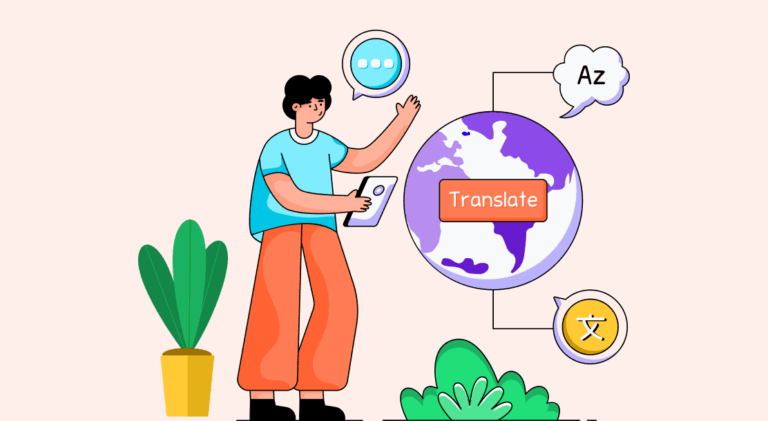
Translation
5 mins read
All You Need to Know About Language Translation and Terminology Management

Translation
5 mins read
6 Reasons to Translate Content into German
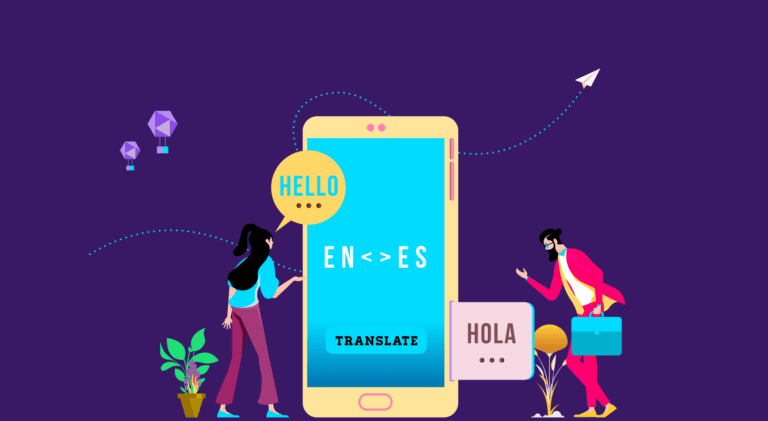
Translation
5 mins read